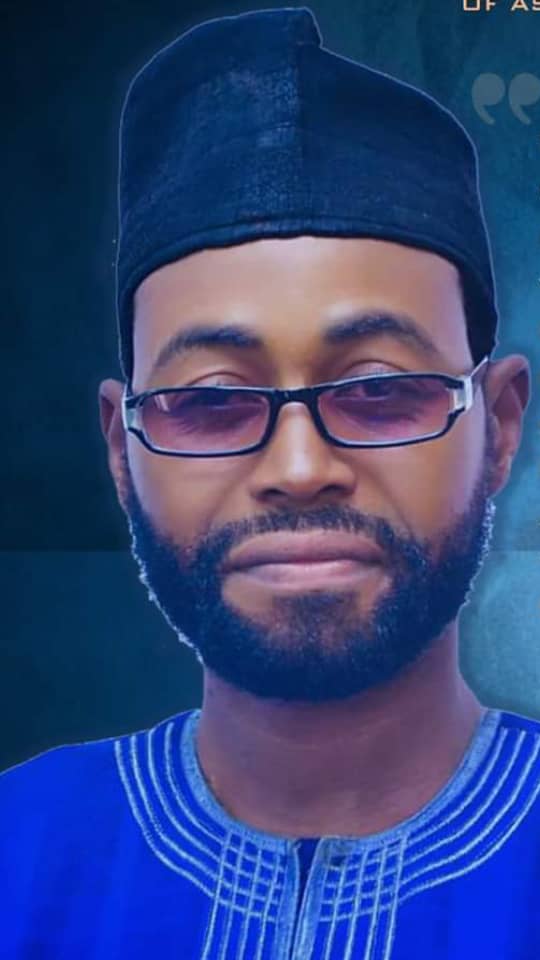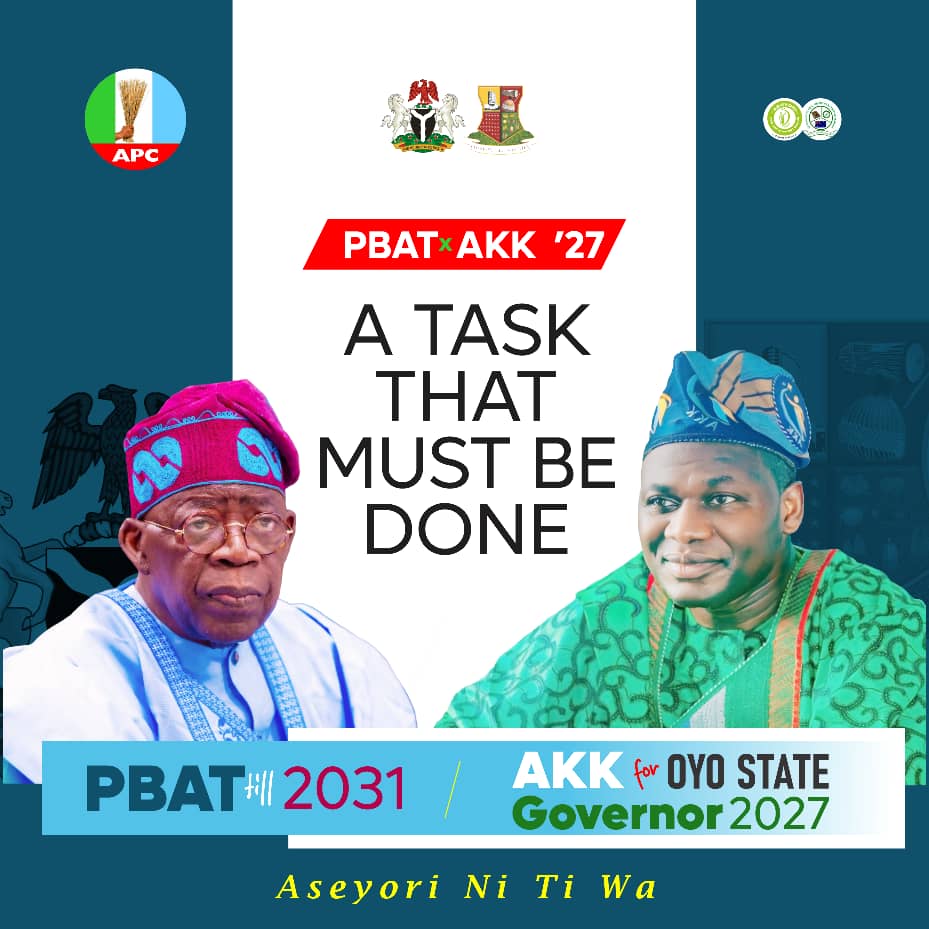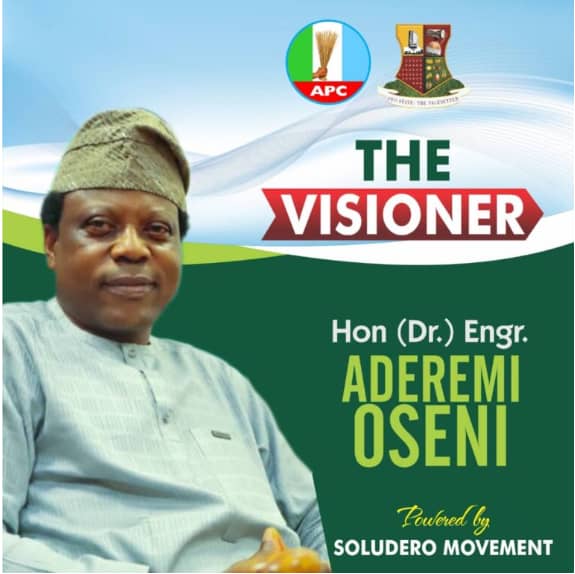

Comrade Seye Akanmu-Bode is the convener of National Support Group, a Political Interest Group. As a political scientist, he has written several articles on the state of the nation in major dailies and blogs, he wrote the book , UKULELE, 2023 Electoral Process: Issues, Outcomes and Bedlam, after the 2023 election. He’s Special Assistant, Media and Strategy, to Honourable Bolanle Aminat Sarumi ( BASA), a frontline politician in Oyo State. He’s also, a Fellow of the Emerging Political Leaders Fellowship of The Bridge Leadership Foundation, founded abd chaired by His Excellency, Senator Liyel Imoke, former Governor of Cross River State.

In this no holds barred interview, he expressed his candid opinions on the state of the nation, tagging it as unprecedented since he became knowledgeable as a child.
Interviewer: Comrade Seye Akanmu-Bode, thank you for joining me today. As a political scientist and an activist, Can you share your thoughts on the current economic situation in Nigeria?

Comrade Seye Akanmu-Bode: It’s undeniably dire and ominous. These are tough times for everyone, particularly those in the proletariat class like me. The price of goods has skyrocketed to unprecedented levels, with inflation exceeding 20%. It’s truly terrible.
Interviewer: Many people believe the current leadership, led by President Tinubu, shouldn’t shoulder the blame, but rather the previous administration under Buhari. Do you agree?

Comrade Seye Akanmu-Bode: This is simply illogical and misleading. Leaders don’t have the right to make excuses. They aren’t elected to do so. When Obama became US President, he inherited an economy in a coma due to the global recession. He didn’t go on television and whine about his predecessor. He simply went to work, and the results were evident within months. President Tinubu campaigned on the basis of knowing the challenges and strategies needed to address them. He himself stated at the beginning of his term that he wouldn’t make excuses because he was aware of the challenges during his campaign. I believe Nigerians should resist attempts to trivialize the issue with rhetoric about the last government.
Interviewer: Despite the crisis, the President seems confident in an economic recovery and pleads for patience from citizens. Do you share this view?
Comrade Seye Akanmu-Bode: Firstly, there’s nothing wrong with patience, but only if you’re confident the government is sincere in its assessment and actively working to rectify the situation they created. Unfortunately, this doesn’t seem to be the case. They seem more interested in engaging in a blame game and propaganda than addressing the real issues. They’ve blamed everyone but themselves, from the former president to the opposition and even governors. The Senate President accused governors of collecting 30 billion naira to fight hunger in their states but not doing so, only to later retract and apologize. This illustrates the desperation of the government. They forget that while propaganda may win elections, it won’t aid governance. Your performance is transparent to the people, and they don’t need experts to analyze it.
Secondly, I disagree with the call for patience due to the hubris displayed by the president so far. His removal of the subsidy was undemocratic. Even the military government under IBB did a better job of engaging citizens in dialogue before implementing policies with dire economic consequences.
Interviewer: Objectively, what do you think is the root cause of this economic quagmire?
Comrade Seye Akanmu-Bode: It’s squarely due to the president’s neo-liberal policies. Previous regimes knew the potential harm and national security threats associated with removing fuel subsidies. This president did so without any rational consideration of the consequences. The gains, as we see now, are minimal compared to the immense suffering it has inflicted on the masses. Everything goes up in price when fuel prices rise. Furthermore, the floating of the naira also worsens the situation as it continues to depreciate against major currencies. As an import-dependent nation, with basic goods like pens and calculators imported, the naira is bound to fall, leading to the astronomical rise in prices. This is why I hold the president solely responsible for the economic calamity citizens are facing.
Interviewer: Recently, the Emir of Kano passed a message to the president through the First Lady, and the Sultan of Sokoto spoke out about the potential for unrest in the north. Some Southerners, particularly Yorubas, question why these traditional rulers remained silent during Buhari’s eight-year rule. Do you share this sentiment?
Comrade Seye Akanmu-Bode: This is another hollow argument that fuels my point about the government’s lack of sincerity. Instead of focusing on the enormity of the crisis, their handlers are chasing shadows with lame excuses and blame games. The government is yet to grasp that this economic crisis is unprecedented in Nigeria’s history, at least since 1999. While the Buhari regime was a mistake, things were never this bad. Whatever economic indicators remained after Buhari’s term have been exacerbated by this regime. People managed to survive during the previous regime, but this government is undoubtedly the worst since 1999.
The north provided the president with the highest electoral vote, with over 60% of the total votes, particularly the Northwest. If they are now speaking out against the backdrop of economic hardship, it’s likely because they feel compelled to do so. They are answerable to their people, who look up to them for action. Writing to the president privately wouldn’t demonstrate their commitment to their people, so they spoke in private. The government doesn’t communicate in private on matters like this, so, why would the Emir and the Sultan do such?
Interviewer: Some members of the Yoruba community within the regime and outside have been accused of promoting the “Yoruba Ronu” agenda, seen as ethnically divisive. What are your thoughts on this?
Comrade Seye Akanmu-Bode: This “Yoruba Ronu” campaign is dangerous and another example of this government’s lack of sincerity. It distracts from the real issues by resorting to ethnic manipulation. Many Yoruba writers and TV personalities have been recruited to spread this propaganda. Witnessing Kola Olootu , a veteran Yoruba Radio presenter I have known since I was a teenager, blaming the opposition for the crisis is disheartening. He needs to understand that no democratic nation expects opposition parties to endorse the ruling party’s policies. If he has evidence to support claims of sabotage against the opposition candidates, he should present it to the government instead of making baseless accusations on television to manipulate viewers, many of whom may be less informed about the situation.
It’s also concerning to see a lack of historical awareness among proponents of this agenda. Did BAT criticize Buhari during his eight-year rule? Even when Fulani herdsmen killed the daughter of the Yoruba leader, Pa Fasoranti, Tinubu infamously asked, “where are the cows?” in a desperate attempt to defend the Buhari regime. The Afenifere, a Yoruba socio-political group, also remained silent during that time, seemingly prioritizing a smooth path for a Tinubu presidency. Professor Wole Soyinka, a prominent Yoruba voice, also remained silent, presumably to protect his close friend, Tinubu. An attack on the Buhari presidency then would have jeopardized Tinubu’s chances of becoming president. So, if Northern rulers are accused of playing ethnic politics to support the Buhari regime, why then are the Yoruba leaders not held accountable for playing their own game in opposing it?
Unlike the Yoruba leaders who remained silent when their own land faced hardship, the Northern rulers have demonstrated that promoting the well-being of their people comes first. I commend them for this. The current generation of Yoruba youth is not receptive to the “Yoruba Ronu” propaganda. Politics is primarily about self-interest, and the only interest the Yoruba youth should pursue is service delivery from the president. Anything beyond that is irrelevant.
Again, I wonder why the president through his surrogates continue to attack the Emir and the Sultan! It’s even more appalling that the president would allow any columnist in his newspaper, The Nation attack the northern rulers. Sam OMATSEYE is the lapdog of President Tinubu, he was the one who wrote the infamous ” obituary” piece against Peter Obi’s supporters just to show his loyalty to his boss.
In his piece titled the GRENADIER, he attacked the Emir of Kano and perhaps, other northern traditional rulers and activists, I didn’t read it to the end because I knew his penchant for insults.
Omatseye is someone I felt should know about history and mustn’t seek to repeat it. Perhaps, he’s oblivious of the 1953 Kano riot which broke out as a result of their leaders being booed and jeered at when Anthony Enahoro moved the motion for self government in 1957 which the northern leaders countered. The northern talakawas heared this and waited for the southern leaders to visit Kano. The southern leaders audacity to visit Kano when the wound was still fresh sparked a riot with lives lost ! President Tinubu is a politician that won his election because the north decided to vote him. I doubt if the north won’t retaliate in 2027 via the ballot box.
Interviewer: The government continues to roll out various “palliative” measures. Do you believe they are genuinely concerned about the people’s plight and making concrete efforts to alleviate hunger and deprivation?
Comrade Seye Akanmu-Bode: This is another misguided notion by the government. They seem to have learned nothing from the previous regime. Firstly, why resort to palliatives? They are meant as temporary interventions in unforeseen circumstances, like the Covid-19 pandemic. You don’t remove subsidies and replace them with handouts! President Tinubu recently met with President Inácio Lula of Brazil. I believe he should consider studying Brazil’s Bolsa Familia program, a successful social intervention program that lifted millions out of poverty.
Secondly, these so-called “palliatives” are targeted solely towards the poorest of the poor. What about low-income earners like me? Many of us are graduates , don’t matter? We shouldn’t be expected to line up for basic necessities like rice and noodles. We pay taxes and deserve the government’s attention. There seems to be no plan in place to offer any relief to those struggling due to the government’s policies.
It’s not too late for the president to reverse course. No major nation operates without subsidies. Even Germany subsidizes gas energy, and the US, a capitalist nation, has social security programs to support vulnerable populations. We cannot continue implementing economic policies based solely on the principles of the Bretton Woods institutions.
Interviewer : Lastly, do you think the president is living up to his much vaunted ” progressive politician”, and an ” Awoist”?
Comrade Seye Akanmu-Bode: This is ludicrous! Comparing Awo with BAT or any of these latter day politicians. Do you compare day and night? Awo was a welfarist, he won’t remove fuel subsidy if he must like the president. The welfare of the citizens is at core of welfarists like Awo, but to a president like Tinubu, the market forces will determine the fate of the masses , not the government. The proletariat masses must starve until the bourgeoisie wealthy haves, eat to stupor and then gives the crumbs to the have nots!
As a Fellow of the Emerging Political Leaders Fellowship of The Bridges Leadership Foundation, founded and chaired by His Excellency, Senator Liyel Imoke,I was taught that one hallmark of a leader is empathy. Awo had this in abundance, but president Tinubu is an egotistical politician. For him, it’s I, me , and myself. His lack of empathy for the citizens led him to remove subsidy on fuel on the day of his inauguration. He announced his coming with sadness. He didn’t consider that we just came out of a Kakistocratic regime of Buhari that he propelled into office and sustained for 8 years. Compared to the late president Umaru Musa Yar’adua, who came in and reduced the price of fuel that his predecessor, President Obasanjo, increased at the twilight of his regime. That’s leadership with empathy. The president didn’t suffer as a child, thus can’t be expected to understand the pangs of hunger.
Interviewer: Thank you for your time and insights, Comrade Seye Akanmu-Bode.
Comrade Seye Akanmu-Bode: You’re welcome, and thank you for having me.